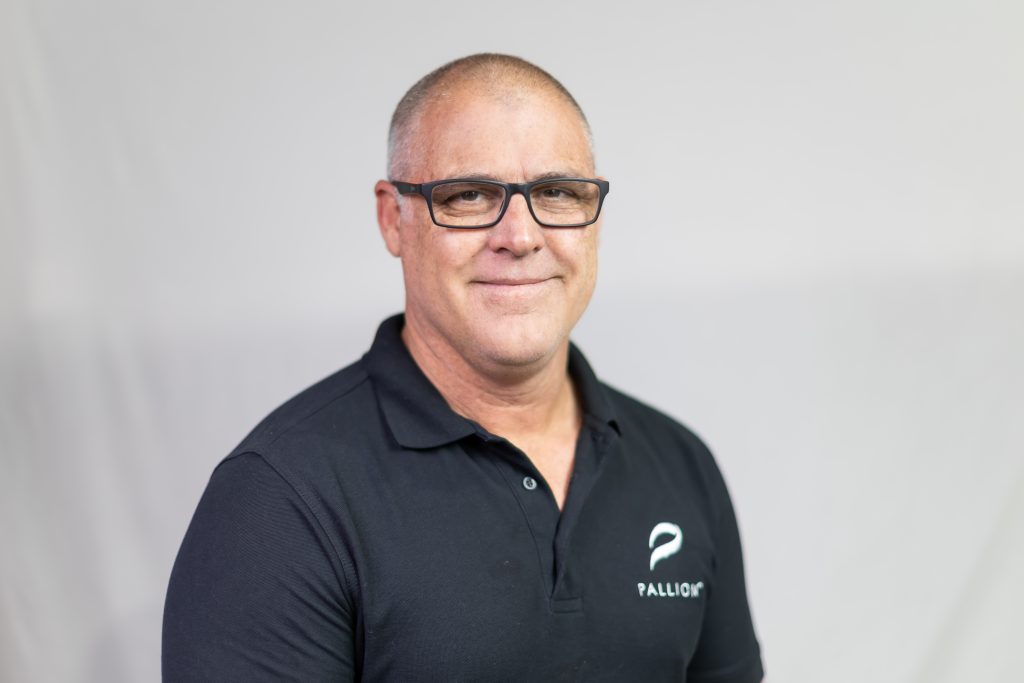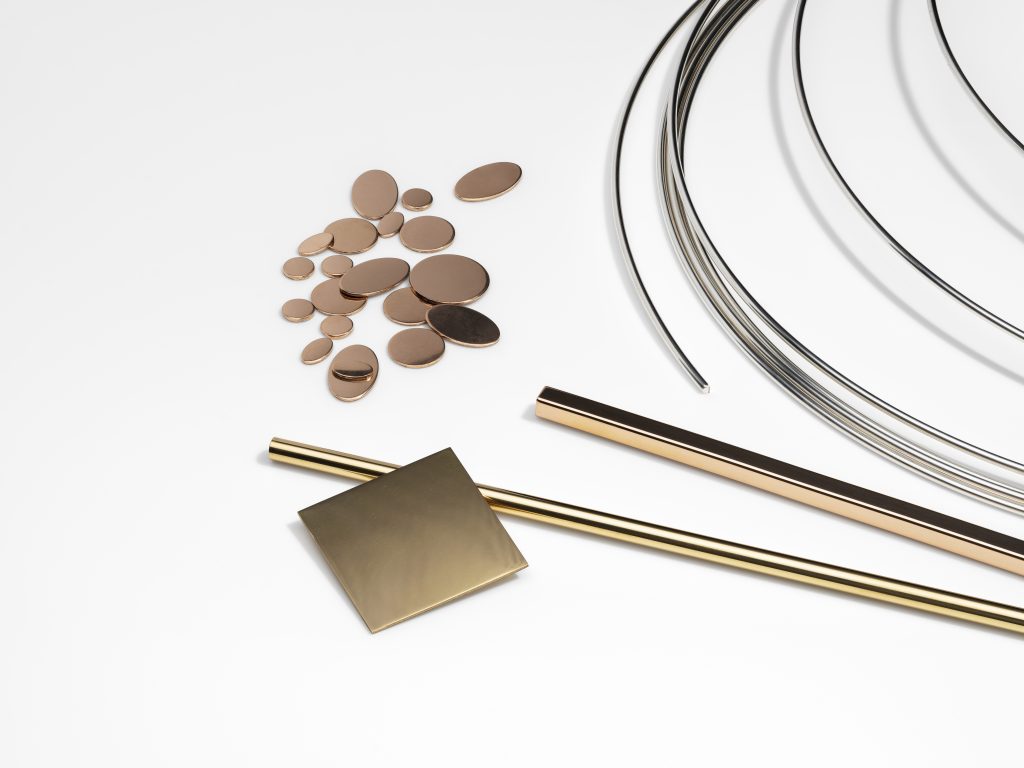As a part of Palloys’ wide range of products and services, we offer a state-of-the-art fabricated metals range and production capacity. Fabricated metals and their production are essential aspects of the jewellery manufacturing industry. We spoke to Palloys Fabricated Metals Production Manager, Ben Pearce, to give us some insight on the process and future of the rich fabricated metals industry.

My history with fabricated metal began 17 years ago when, after graduating from university with a Bachelor of Fine Arts majoring in Jewellery and Object Design, I took a job with A&E Metals (now Palloys) to get cheaper material for my own practice. Since then, I have immersed myself in the world of fabricating and producing precious metal alloys, looking to understand all the science behind why alloys behave the way they do and looking to improve processes. It’s quite amazing how adding minuscule amounts of certain elements to an alloy can have such a large effect on workability and grain size, and more. Especially with help and advice from metallurgists within the company who have a lifetime of experience working with precious metals and developing new alloys, there is an abundance of knowledge and skill that can be drawn on.
All Palloys fabricated metals are alloyed and produced in-house, utilising the latest continuous casting equipment to ensure the end product is of the highest quality. Every batch of metal when alloyed undergoes analysis to ensure it is the correct purity before being released into production. All finished product then goes through our quality control department to ensure the metal is free from defects, the correct alloy and all dimensions are correct.
Having ABC Refinery as part of the group ensures that all precious metals used in production are of known origin and follow strict sustainability guidelines. With guaranteed supply, Palloys can produce larger batches. Long gone are the days of torch melting small batches of an alloy. We now produce in larger batches utilising the latest technology leading to a more consistent end product.

I have a soft spot for our more bespoke specialised metals that are harder to come by. Alloys such as Shibuichi, Shakudo and our bonded metal range. These metals provide excellent contrast when used alongside gold and silver alloys and we are the only ones producing these in Australia. Our gold chenier range is also great – continuous cast, seam-free, and available in a range of alloys, and we have the capability to produce an endless range of sizes.
Additionally, all gold used in our alloys is 100 percent Australian gold. This gives customers peace of mind that the metal they use is conflict free and refined with the latest technology minimising any impact on the environment.
There are three aspects of my fabricated metal practice that I know make them the best in the industry:
- Stringent quality control processes in place. Even as a manager, I still get things rejected through quality control and will have to make them again. This ensures that the customer is receiving the best quality metal possible, with no exceptions.
- The latest technology is utilised, particularly in the continuous cast, which ensures issues like porosity are eliminated. With all alloying and annealing taking place under a protective atmosphere, our metal is free from oxidisation issues.
- We have put a lot of time and research into fine-tuning the production of our alloys with our metallurgists performing microstructure analysis, hardness tests, stress tests, and more to ensure that we are supplying the best quality metal.
Moreover, the new laser cutter (we have named it Bessie after its first customer job) will cut up to 2.5mm thick in silver, platinum, gold and base metal alloys. Jewellers will be able to send us a file and we will cut whatever they want, in whatever alloy they would like – this means less wasted material for the jeweller and will be an invaluable time and money saver. With a cut width of 0.08mm, the level of accuracy achievable is incredible.
The Palloys workshop will always have new products and alloys we are working on. For example, finished Mokume Gane sheets and laminated stock gauges are a work in progress at the moment. Also, something a lot of people may not be aware of is all the other industries Palloys fabricated metal division caters to: electrical, scientific, audio, water purification and medical. Working with these industries and their stringent requirements leads to improvements throughout all of our fabricated metal production.
The fabricated metals industry is constantly evolving, with factors such as material cost change and trends. Palladium used to be the cheap alternative to platinum and white gold however, with the price of palladium skyrocketing, due to supply issues and its use in other industries, it is now rarely used. Similarly, platinum has dropped in price to a point where it’s being used more and more, and is comparable to 18ct white gold in price. Our platinum/ruthenium alloy is gaining in popularity due to being harder and therefore, a lot easier to polish up compared to the traditional platinum/iridium alloy. Best of all, with the price of iridium almost tripling since late 2020, the ruthenium alloy is cheaper.
The future of fabricated metals is looking promising. There will always be a place in the industry for handmade fabricated metals. Discerning customers understand the work involved, the value and the longevity associated with a handmade piece over something mass produced and cast. With the grain refinement and processing that goes into a piece of jewellery made by hand, it just can’t be beaten. Compounded with Palloys’ uncompromising and industry-leading refining capacity, the future of our fabricated metals has never looked brighter.

Read below for related stories: